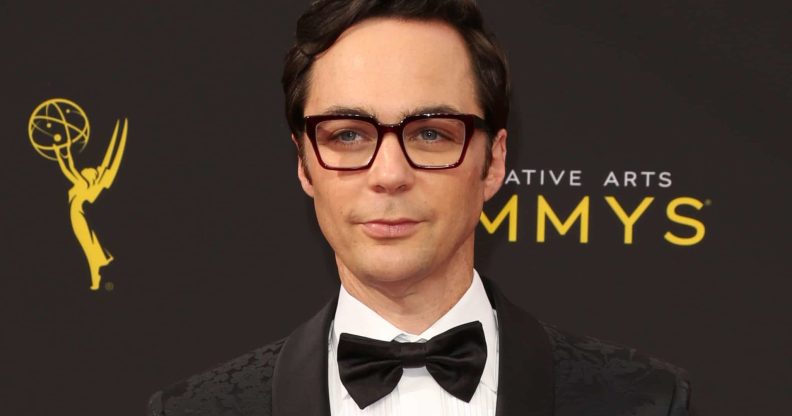Jim Parsons explains how dragging up to play a woman changed his life forever

Since gaining fame on ’The Big Bang Theory’, Jim Parsons has starred in a number of dramas about the LGBT+ community. (Paul Archuleta/Getty)
Jim Parsons revealed he “didn’t have to worry about appearing gay” and got a taste “of freedom” playing a woman in a Charles Busch play.
He told the LA Times about the defining experience at school: “When I was studying theatre at school, I wasn’t worried about coming out.
“I was more concerned that at a small level, I would always seem gay in every role that I took. That was something that held me back.
“But when I performed in drag in the Busch play, I felt that there was this permission that was granted and I didn’t have to worry about appearing gay.
“Once you taste that level of freedom, there’s really no going back.”
Charles Busch was an American actor and playwright who played the leading lady in many of his own plays dressed in drag.
He found similar freedom in the roles. He said: “Drag is being more, more than you can be. When I first started drag I wasn’t this shy young man but a powerful woman.
“It liberated within me a whole vocabulary of expression.”
Despite rising to fame as Sheldon Cooper, Jim Parsons has gravitated to dramatic gay characters in recent years
Parsons rose to fame in CBS sitcom The Big Bang Theory where he played physicist Sheldon Cooper, but has since expanded his horizons taking on a number of LGBT+ roles.
He has previously advocated for filmmakers to “ensure that all parts are open to all actors”.
He added: “It’s important that gay characters are portrayed as well-rounded and completely human individuals.”
In the interview, Parsons also spoke about his role in Netflix’s The Boys in the Band, based on the play by Mart Crowley.
Parsons said it is far from just a film about gay men: “While things are much better for homosexuals in our country and the world today, there are always other peole or other groups that are victimised and discriminated against.
“That’s why the play has been such a lightning rod and traveled so far since it was first written. What these characters are going through is easily applicable to many other marginalised groups or people.”

